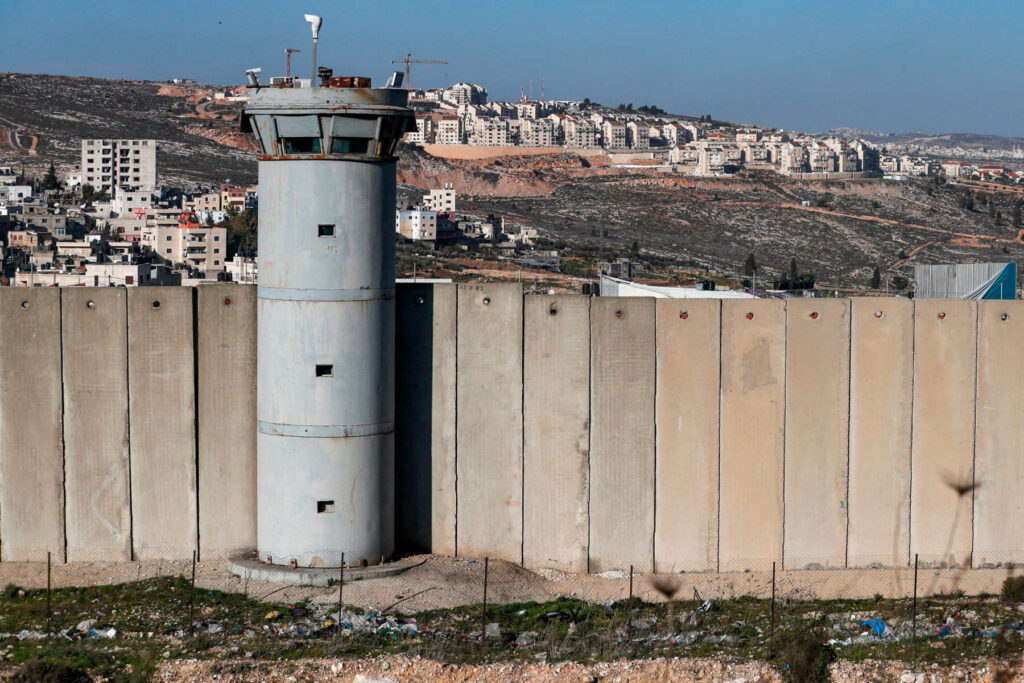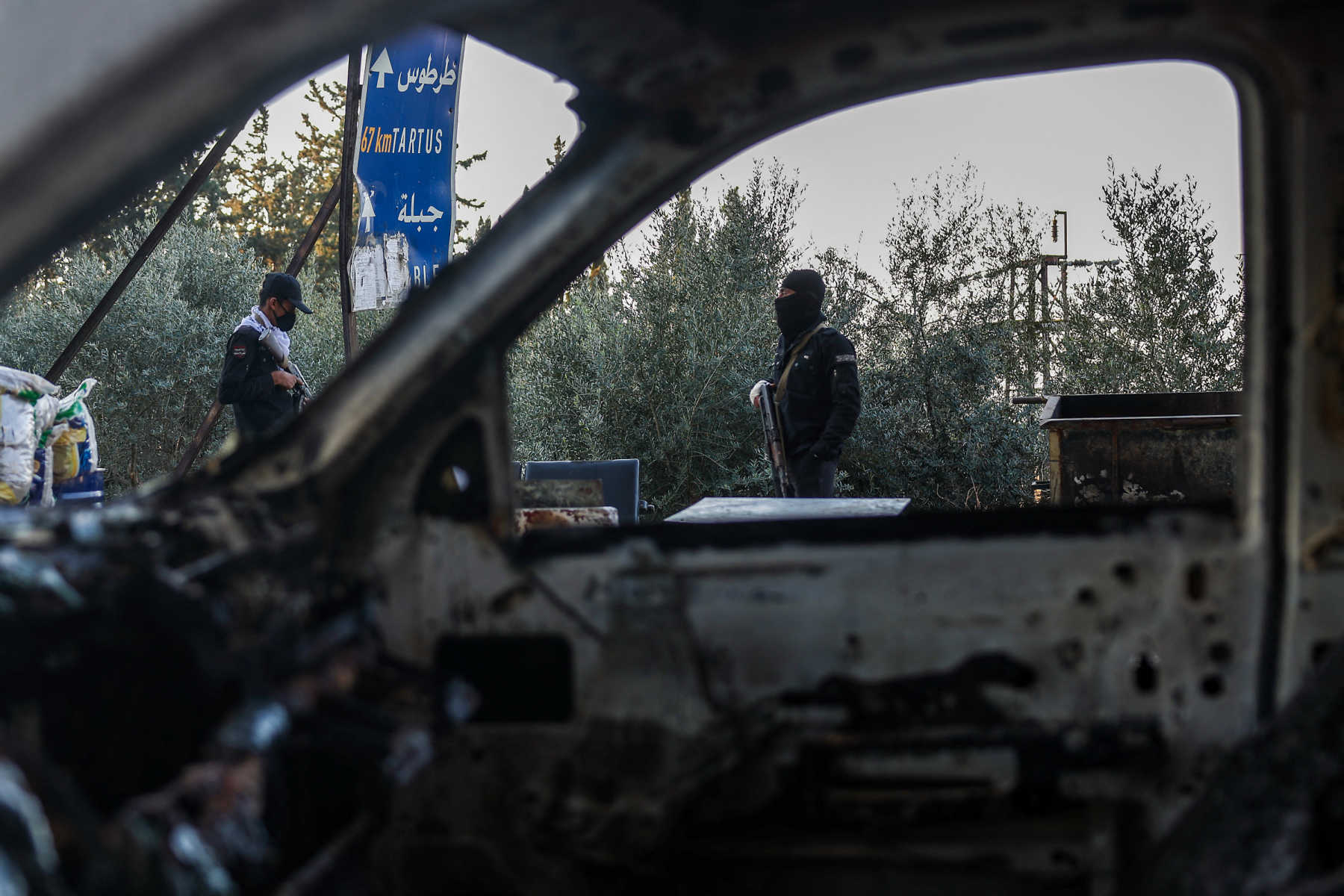Michael Lynk served as the United Nations Special Rapporteur for human rights in the occupied Palestinian territory, from 2016 to 2022. He is a non-resident fellow at DAWN.
Twenty-five years ago this week, on July 17, 1998, more than 140 countries gathered in Rome to complete the negotiations for a new international treaty to create a permanent international tribunal: the International Criminal Court. Out of these talks emerged the Rome Statute that established the ICC, which would try perpetrators of serious international crimes, including war crimes and crimes against humanity. After nine years of preparatory work and seven rounds of negotiations led by the United Nations, 120 states voted to adopt the treaty, with only seven states voting against and 21 abstaining.
The Rome Statute built upon the legacy of the Nuremberg and Tokyo military tribunals in the aftermath of World War II, as well as the war crimes tribunals for Rwanda and the former Yugoslavia set up in the 1990s. The ICC itself would come into existence in 2002, with its operations headquartered in The Hague, like the International Court of Justice. Many states would also enact the framework of the Rome Statute into their domestic legislation, broadening the growing reach of universal jurisdiction, the legal principle that any nation's courts can try people for international crimes, such as war crimes and crimes against humanity, committed anywhere else in the world.
As the negotiations in Rome concluded, Kofi Annan, then the United Nations secretary general, offered his congratulations to the assembled state representatives. "Two millenniums ago, one of this city's most famous sons, Marcus Tullius Cicero, declared that 'in the midst of arms, law stands mute,'" Annan remarked. "As a result of what we are doing here today, there is real hope that that bleak statement will be less true in the future than it has been in the past."
One of the seven countries voting against the Rome Statute was Israel. Its refusal to ratify the treaty and join the ICC, it is widely acknowledged, was over the Rome Statute designating civilian settlements in occupied territory as a war crime—which would directly apply to the activities of Israeli political, military and administrative leaders involved in the country's massive settlement enterprise in the occupied Palestinian territory since 1967. Among the list of war crimes laid out in the Rome Statute is Article 8(2)(b)(viii), which prohibits: "The transfer, directly or indirectly, by the Occupying Power of parts of its own civilian population into the territory it occupies, or the deportation or transfer of all or parts of the population of the occupied territory within or outside this territory."
Judge Eli Nathan, the head of the Israeli delegation in Rome, admitted that Israel's opposition to joining the ICC was precisely over the issue of settlements, claiming that the Rome Statute was being "blemished and abused as a potential tool in the political war against Israel." Israel's delegates, he explained to the conference, "fail to comprehend why it has been considered necessary to insert into the list of the most heinous and grievous war crimes, the action of transferring population into occupied territory." Had that not been listed as a war crime in the treaty, Nathan declared, "my delegation would have been able proudly to vote in favor of adopting the statute."
The language on settlements was not placed in the Rome Statute lightly, or as a form of political revenge, as Israel alleged. Rather, its inclusion was deliberate, appropriate and linear, the culmination of 50 years of precedent in international law.
The Rome Statute's inclusion of settlements as a war crime was deliberate, appropriate and linear, the culmination of 50 years of precedent in international law.
- Michael Lynk
In August 1949, the Geneva Conventions—the beating heart of modern international humanitarian law—were adopted by an international conference of member states. In the Fourth Geneva Convention, dealing with the protection of civilians during armed conflict, Article 49, paragraph 6 expressly proscribed the act of settler implantation: "The occupying Power shall not deport or transfer parts of its own civilian population into the territory it occupies."
The accepted purpose of the prohibition was to preserve the demographic and social structure of the occupied territory and to forbid attempts by an occupying power to treat the territory as a fruit of conquest. As the prominent Swiss jurist Jean Pictet—one of the drafters of the Geneva Conventions—explained in a 1958 commentary for the International Committee of the Red Cross, the prohibition on civilian settlement of occupied territory:
…is intended to prevent a practice adopted during the Second World War by certain Powers, which transferred portions of their own population to occupied territory for political and racial reasons or in order, as they claimed, to colonize those territories. Such transfers worsened the economic situation of the native population and endangered their separate existence as a race.
In 1977, the parties to the Geneva Conventions gathered in Switzerland to negotiate new protocols to update its humanitarian protections. Among the provisions in the Protocol Additional 1 was Article 85(4)(a), which repeated that language in Article 49, but now elevated the prohibition against settler implantation to be a "grave breach" and a "war crime."
In the 1990s, the United Nations Commission on Human Rights released three major studies on settler implantation and population transfers authored by Awn al-Khasawneh, a renowned Jordanian jurist who would later become a judge on the International Court of Justice. "The forced removal of people away from their traditional lands, or the implantation of settlers without the consent of the original inhabitants into whose territories they are being moved," al-Khasawneh wrote the first of those studies, in 1993, "are instrumental to assimilationist policies and constitute obvious breaches of the minimum guarantee which the right to self-determination is accepted as conferring: the right of a people to 'freely determine' its destiny." In his follow-up 1997 study, al-Khasawneh concluded that given "[t]he range of human rights violated by population transfer and the implantation of settlers," they had to be considered "systematic or mass violations of human rights."
Thus, by the time that the final round of negotiations began in Rome in July 1998 to create the ICC, international law had already decisively accepted that civilian settlement in occupied territory was a war crime. The project in Rome was not to debate or dispel this international legal consensus, as Israel's delegation apparently wanted, but to establish a court to provide accountability for all war crimes.

The United Nations has long judged Israeli settlements to be a serious breach of the Fourth Geneva Convention. The U.N. General Assembly first adopted a resolution condemning the settlements as "completely null and void" in December 1971, when there were fewer than 10,000 settlers in the conquered Palestinian territory, including Israeli-occupied East Jerusalem. Since then, the General Assembly has adopted 163 resolutions specifically condemning Israeli settlements as illegal, the most frequently pronounced-upon issue in its history.
For its part, the U.N. Security Council has passed seven resolutions since 1979 designating Israeli settlements as illegal. Its most recent, Resolution 2334, was approved in December 2016, calling the settlements a "flagrant violation of international law" and demanding that Israel "immediately and completely cease all settlement activities." The resolution also directed the U.N. secretary general to report to the Security Council every three months on its implementation. In each of his 26 quarterly reports since the beginning of 2017, Secretary General António Guterres has stated that Israel has taken no action whatsoever to comply with the resolution's mandate.
In the face of Israel's serial defiance of its resolutions, the U.N. has recently become more direct in its public reports on Israeli settlements. As the U.N.'s special rapporteur for human rights in the occupied Palestinian territory, I issued a report to the Human Rights Council in July 2021 that concluded that the settlements "are the engine of this forever occupation, and amount to a war crime."
Last year, both the newly established U.N. Independent International Commission of Inquiry on the Occupied Palestinian Territory and the secretary general in his annual report on Israeli settlements stated that the settlements may constitute a war crime. The U.N. High Commissioner for Human Rights, Volker Türk, was more unequivocal in a report this past March. "The establishment and expansion of settlements in the Occupied Palestinian Territory and the occupied Syrian Golan, authorized or unauthorized under Israeli law, amount to the transfer by Israel of its own civilian population into the territories it occupies, which is prohibited under international humanitarian law, as consistently confirmed by the competent United Nations organs, including the International Court of Justice," the report concluded. "Such transfers amount to a war crime that may engage the individual criminal responsibility of those involved."
The future decision by the ICC's prosecutor should not, legally, be a difficult one. The status of Israeli settlements as a war crime is seemingly straightforward in international criminal and humanitarian law.
- Michael Lynk
In February 2021, a pre-trial chamber of the ICC ruled that the court has criminal jurisdiction in Palestine and that the territorial scope of this jurisdiction extends to the West Bank, including East Jerusalem, and Gaza. The chief prosecutor's office at the ICC has been investigating Israeli settlements as a war crime since Palestine submitted its initial complaints to the court in 2015.
Israel's current far-right government, in power since late last year, is also a settler government that is aiming, openly and in clear violation of international law, to expand the settler population in the West Bank and East Jerusalem to an unprecedented scale. According to Ir Amim, an Israeli human rights organization, the new government, the most right-wing in Israel's history, has already advanced more than 16,000 settlement housing units in East Jerusalem through the planning stages. Peace Now, another Israeli human rights organization, has reported that more than 13,000 new housing units are being planned for West Bank settlements this year. With almost 30,000 new housing units approved in only six months, this is by far the largest annual rate ever for expanding Israeli settlements—and it's still only July.
At the end of June, on the day that Israeli authorities approved nearly 5,700 new settlement housing units, Peace Now warned that the staggering expansion of Israeli settlements "should make clear that the government is rushing headlong towards an annexation coup" in the West Bank.
The chief architect of this plan is Bezalel Smotrich, Israel's finance minister, who was also given a special ministerial role within the Ministry of Defense that essentially puts him in charge of all the settlements. A radical settler himself guided by his political motto of "victory by settlement," Smotrich successfully pushed the Israeli Cabinet to shrink the approval process for new settlements and housing units and place primary authority in his hands. In May, Smotrich called for doubling the settlement population in the West Bank to one million settlers within two years. The path is already being paved by a rapidly expanding settler road system and the forest of construction cranes in settlements across the West Bank.
If the ICC's prosecutor determines that Israeli settlements are a prima facie war crime under the Rome Statute, who could be held criminally liable among Israel's leadership? Smotrich is only the latest in a long line of Israeli officials involved in the settlement enterprise, which every Israeli government has pursued since shortly after the end of the June 1967 war. Menachem Klein, a political scientist at Bar-Ilan University in Israel, has observed that the settlements are Israel's largest national undertaking since its founding in 1948: "Almost the entire state is invested in this project." The full apparatus of the state—the political, military, judicial and administrative leadership—has provided the financing, planning, diplomatic cover, legal rationale, security protection and infrastructure that has been indispensable to the incessant growth of the settlements over the past 56 years.
Individual criminal liability would likely extend to Israel's past and present political leadership; to its military commanders responsible for the oversight of the occupation and the settlements; to the senior administrators who plan the settlements and its supporting infrastructure; and to the international fundraising organizations that have directed billions of dollars over the years to settlements.
The future decision by the ICC's prosecutor should not, legally, be a difficult one. The status of Israeli settlements as a war crime is seemingly straightforward in international criminal and humanitarian law. But indictments of criminal liability for Israel's settlement enterprise will very likely attract immense political pushback, particularly from the United States. This will ultimately be a supreme test of political will. As I stated in my 2021 report to the United Nations Human Rights Council, "An occupying power that initiates and expands civilian settlements in defiance of international law and the Rome Statute cannot be serious about peace. Equally, an international community that does not impose accountability measures on a defiant occupying power contrary to international law cannot be serious about its own laws."
















![Security forces loyal to the interim Syrian government stand guard at a checkpoint previously held by supporters of deposed president Bashar al-Assad, in the town of Hmeimim, in the coastal province of Latakia, on March 11, 2025. Syria's new authorities announced on March 10, the end of an operation against loyalists of deposed president Bashar al-Assad, after a war monitor reported more than 1,000 civilians killed in the worst violence since his overthrow. The Syrian Observatory for Human Rights said the overwhelming majority of the 1,068 civilians killed since March 6, were members of the Alawite minority who were executed by the security forces or allied groups. (Photo by OMAR HAJ KADOUR / AFP) / “The erroneous mention[s] appearing in the metadata of this photo by OMAR HAJ KADOUR has been modified in AFP systems in the following manner: [Hmeimim] instead of [Ayn Shiqaq]. Please immediately remove the erroneous mention[s] from all your online services and delete it (them) from your servers. If you have been authorized by AFP to distribute it (them) to third parties, please ensure that the same actions are carried out by them. Failure to promptly comply with these instructions will entail liability on your part for any continued or post notification usage. Therefore we thank you very much for all your attention and prompt action. We are sorry for the inconvenience this notification may cause and remain at your disposal for any further information you may require.”](https://dawnmena.org/wp-content/uploads/2025/04/syria-22039885951-350x250.jpg)










![Security forces loyal to the interim Syrian government stand guard at a checkpoint previously held by supporters of deposed president Bashar al-Assad, in the town of Hmeimim, in the coastal province of Latakia, on March 11, 2025. Syria's new authorities announced on March 10, the end of an operation against loyalists of deposed president Bashar al-Assad, after a war monitor reported more than 1,000 civilians killed in the worst violence since his overthrow. The Syrian Observatory for Human Rights said the overwhelming majority of the 1,068 civilians killed since March 6, were members of the Alawite minority who were executed by the security forces or allied groups. (Photo by OMAR HAJ KADOUR / AFP) / “The erroneous mention[s] appearing in the metadata of this photo by OMAR HAJ KADOUR has been modified in AFP systems in the following manner: [Hmeimim] instead of [Ayn Shiqaq]. Please immediately remove the erroneous mention[s] from all your online services and delete it (them) from your servers. If you have been authorized by AFP to distribute it (them) to third parties, please ensure that the same actions are carried out by them. Failure to promptly comply with these instructions will entail liability on your part for any continued or post notification usage. Therefore we thank you very much for all your attention and prompt action. We are sorry for the inconvenience this notification may cause and remain at your disposal for any further information you may require.”](https://dawnmena.org/wp-content/uploads/2025/04/syria-22039885951-360x180.jpg)









